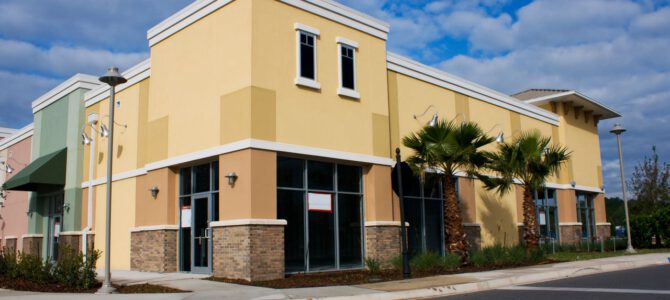Real estate encompasses land, and anything permanently affixed to it, including structures like homes and buildings and natural resources such as minerals or water. It sets itself apart from personal property, which includes items not attached to land, like cars and jewelry.
Real estate is the land and anything permanently attached, including structures like homes and natural resources such as water and minerals. It distinguishes itself from personal property, which refers to items not permanently affixed or built into the ground, like vehicles, jewelry, and furniture. Real estate also differs from raw land, which lacks structure and only includes natural beauty and resources. Contact Trophy Point Realty Group for professional help.
The five main categories of real estate are residential, commercial, industrial, raw land and special use. The type of real estate you purchase will depend on your specific investment goals, but all types are affected by the economy and fluctuate in value based on supply and demand.
New buildings, such as home construction projects and shopping malls, are a big part of the real estate industry. Investors and analysts monitor housing starts, which refers to the number of new buildings being constructed, to get a sense of the economic direction and see what the future holds for real estate.
Real estate agents specialize in different areas. Residential real estate is the most common area of focus for brokers, as it encompasses new construction and resale single-family homes. This includes condos, townhouses and duplexes. Commercial real estate encompasses spaces used for business, such as offices, retail shops and strip malls. Apartment buildings are considered commercial, as well, since they’re owned to produce income for the tenants.
Industrial real estate is the space used for manufacturing and processing products. Warehouses and distribution centers are examples of industrial real estate. Raw land is the least developed type of real estate, and it’s often referred to as vacant or undeveloped land. It can include agricultural lands, forests and farmland, as well as reclaimed sites.
Residential
Residential real estate is property used as a dwelling for people to live in. It is one of two general categories of real estate, the other being commercial real estate. By industry convention, any property that is occupied and used solely for residence purposes qualifies as residential real estate. This includes condominium units, single-family homes, and multi-family homes with four or more units.
The demand for residential property varies by local market and can be driven by factors such as job growth, household income levels, or interest rates. Most home buyers purchase their real estate with a mortgage, which is secured by the property and typically requires a down payment of between 3.5-20 percent of the total value of the property.
In the past, wealthy urbanites bought a townlot and hired an architect or contractor to build them a bespoke home. As city populations grew, so too did the need for affordable housing, and large-scale residential development became common. This largely took the form of new housing developments that were built on spec, that is, they were built for sale to residents who had not yet been identified.
Purchasing residential real estate is often the largest financial investment a person will make in their lifetime. It can also be a great way to generate a steady stream of income. Many real estate investors purchase residential property to rent it out, either short term or long term. This type of investing generally involves more work than renting out commercial properties, as it is important to find well-vetted tenants who will treat the property with care and respect. It is also important to be aware of zoning regulations that may impact your ability to rent out your property.
Commercial
Unlike residential real estate, which includes single- and multifamily homes and rental properties like apartments, commercial property is not designed to be lived in. It is primarily used to conduct business and generate income for its owner. These include office buildings, malls, and even factories. Real estate agents who specialize in commercial real estate (CRE) focus on selling these types of properties to investors and businesses that need to rent them.
This type of real estate is often much larger than residential property and located in densely populated areas that are busy with traffic. As a result, they are typically more expensive. Additionally, they tend to be occupied by businesses that are paying rental rates to the property owner. This makes evictions much more challenging for property owners, which is why they need to carefully screen tenants and follow strict zoning regulations when leasing their space.
Some of the more common types of commercial real estate are restaurants, shopping centers, and offices. However, there are many other types of property that fit into this category. For example, self-storage facilities and cold storage spaces are large industrial properties that are primarily used to store things like food and medicine. Hospitals and affordable housing are also considered commercial real estate.
The commercial real estate market is a robust one that offers many opportunities for investors. However, it is important to understand the intricacies of this industry before investing. It is also helpful to enlist the help of an experienced real estate agent who can guide you through the process.
Industrial
Investing in industrial real estate can be an excellent way to diversify your portfolio and generate income. However, as with all investment types, the benefits and risks vary depending on the type of property you choose to purchase.
Warehouses, distribution centers and manufacturing facilities are some of the most popular industrial uses for real estate properties. These spaces tend to be more stable and less susceptible to market fluctuations. They also often require high-volume occupancies and are well-suited to long-term leases.
These spaces are generally characterized by their location and proximity to transportation corridors for goods delivery and despatch. Unlike retail stores, malls and outlet malls that rely on an attractive shopfront and friendly atmosphere to attract consumers, industrial business owners are focused on how convenient their space is for them to function and make money.
As the economy continues to grow, demand for industrial real estate is increasing. Vacancy rates remain low, and rents are rising. As a result, investors are increasingly interested in these properties. However, rising interest rates could cause a decrease in demand for industrial properties.
In the future, demand for this type of real estate is expected to increase as consumer spending habits evolve and online shopping becomes more prevalent. Many retailers are moving their supply chains to accommodate this change, and securing the right distribution center location is key.
As a result, the industrial sector is an increasingly attractive investment opportunity. One of the best ways to get involved in the market is through a real estate investment trust (REIT). One such REIT is Innovative Industrial. Innovative Industrial buys marijuana production facilities and then leases them to seasoned growers under long-term contracts. As the marijuana industry continues to grow, this REIT is poised for success.
Investment
For millions of Americans, real estate represents their single most valuable asset. It is the place where they live, where their children attend school and where they work. For some, their rental properties provide a steady income stream. And, for those who are active investors, it is their primary source of wealth creation.
Real estate investments can be made directly in a property, such as a home or business building, by purchasing the property with cash or by taking out a mortgage. Undeveloped land also can be a viable investment, yielding returns from its potential for future development and from the commodities it produces, such as timber and agricultural products.
Generally, the more direct an investment in real estate, the higher its return. Investors can also benefit from tax benefits, including depreciation and the ability to write off investment expenses. However, active real estate investing is not for everyone. Those who engage in it need to have the necessary hard and soft skills, as well as a substantial amount of capital to acquire a property, make improvements and cover ongoing costs, such as insurance, mortgage payments, property taxes, utilities and maintenance.
In addition, those who invest in residential real estate must be aware of the impact that their investment can have on the surrounding community, including crime rates, traffic patterns, municipal services and schools. Those who invest in commercial real estate must consider similar factors, as well as the marketability of a property’s location and its proximity to competitors and customers. These investments can be lucrative, but they come with more risk than many other types of investing.
